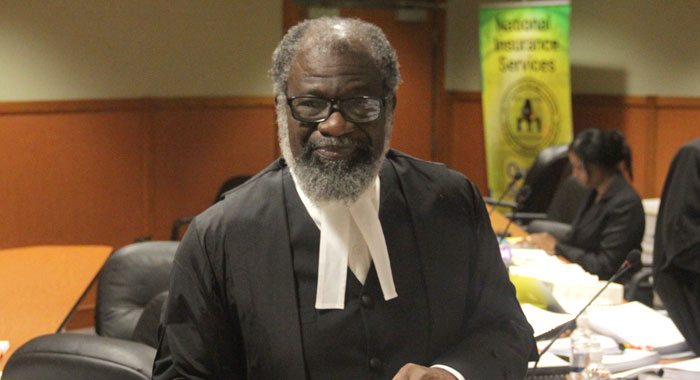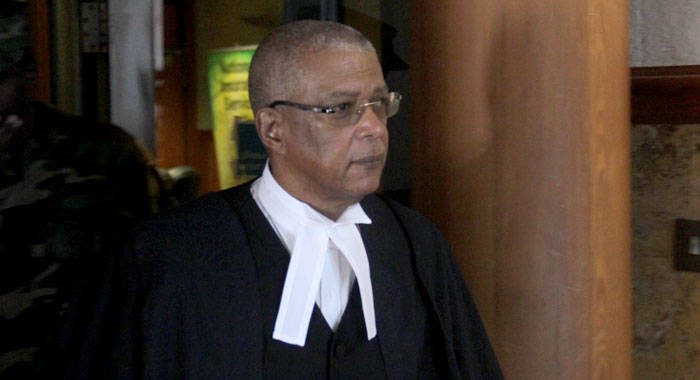High Court judge Justice Stanley John, on Friday, disagreed with a submission by Queen Counsel Stanley John that the electoral officials in the Central Leeward petitions are not entitled to call any witness.
The electoral officials in the case are the returning officer, Winston Gaymes, the presiding officer Kathleen Jeffers, and the Supervisor of Elections, Sylvia Findlay-Scrubb.
The lawyer’s submission came as Sylvester King, an employee of the Electoral Office, was about to be called to testify.
Counsel John argued that those parties are entitled to testify but cannot call any witnesses.
He referred the court to rule 20 of the Election Petition Rules, which says at sub-rule (1):
“When a petition complains of an undue return that claims the seat for some person other than the person returned, the respondent may, within 10 days of the service of the notice of the petition, give notice in writing to the petitioner that he or she intends to give evidence to prove that the person on whose behalf the seat is claimed was not duly elected.”
Counsel John told the court no such notice was given.
John said that the electoral officers in the case were giving evidence by virtue of the fact that they are respondents “but not by virtue of this because they gave no notice of their intention to do so”.
He further read the sub-rule 20, which says:
“The grounds on which a respondent intends to complain that a person on whose behalf the seat is claimed was not duly elected shall be set out in the notice and the rule applicable to a petition and the particulars of charges made in the petition shall apply to every notice.”
John said that it is where the electoral official who had been given notice that they have a case before the court can then call evidence.
“Because they cannot call evidence as respondents unless they, based on these proceedings, have concerns,” counsel John said.
Counsel John told the court that his submission was “a novel thing but a
sound one”, based on a proper interpretation of the rule.

In response, Senior Counsel Douglas Mendes, a lawyer for the respondent in the case, said the first difficulty counsel John has is that the court has fixed this three-week period, after a long interlocutory period, for the trial of the petitions.
He said the intended witnesses for the petitioners were known since June 2018 and counsel John was only then saying they can’t give evidence at all.
The court had also given a time period by which the parties could have made applications to the court to strike out any evidence that was inadmissible, Mendes said, adding that John was submitting to the court that the evidence of all witnesses are inadmissible.
But, Justice John told Mendes that he wanted to hear him on the matter of the law.
Mendes said that the rule that John cites simply does not apply.
He said that ordinarily, when an election is challenged, the petition would say these are the errors that were made and as a consequence the election should be set aside.
If the court agrees, an election would also have to be held, Mendes said, adding that it also happens that a petition must say that not only should the election be set aside but that the court should order that the petitioner or someone else be duly elected.
He said that Rule 20 is applicable in cases where the petitioner is saying that someone else other than the petitioner was elected.
Counsel John objected to Senior Counsel Anthony Astaphan addressing the court on the matter, saying that the witness in question was not being called on behalf of Astaphan’s clients.
However, the judge decided to hear Astaphan, who aligned himself with Mendes’ submission.
Astaphan said the notice of recrimination would apply when a third party is seeking to get involved in the election petition because that third party doesn’t believe that either the petitioner or the respondent should be returned.
The judge rejected counsel John’s submission and allowed the witness to be called.







SCHOOL THEM ASTAPHAN AND MENDES !! ….LOL